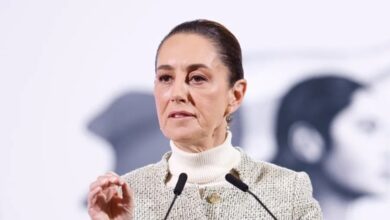YouTube Is Demonetizing Content that Denies Climate Change: Pros and Cons
Google recently announced a ban on the promotion of content that denies climate change, which can be good in the first place, but can also have negative consequences.

The denial about climate change has shown how dangerous it can be, especially if it is spoken by influential people with minimal power over important decisions that have a high level of impact. Photo: Pexels
LatinAmerican Post | Vanesa López Romero
Listen to this article
Leer en español: YouTube desmonetiza contenido que niegue el cambio climático, ¿bueno o malo?
The denial about climate change has shown how dangerous it can be, especially when are influential people with some power over important decisions that have a high level of impact the ones tha share it. An example of this is the former president of the United States, Donald Trump, who due to his skepticism towards the scientific community about climate change, decided to withdraw the world power from the Paris Agreements during his term. Likewise, the case of Jair Bolsonaro, president of Brazil, and his constant criticism and attacks on the scientific community, the evidence of climate change and those leaders who decide to have the reduction of greenhouse gases on their as a priority on their agendas.
Also read: What is the Dominga Mine, the Controversial Project Associated with the Pandora Papers?
Climate change is real, we see it every day in the news, we feel it with the strong changes in temperature and it is evident in the constant natural disasters that occur around the world. Planet Earth is speaking to us and today more than ever it is necessary to listen. In response to this, more and more companies and platforms decide to bet on applying policies that are friendly to the environment and that conserve the natural resources that we can still make use of.
YouTube will no longer monetize videos promoting climate change denial
On October 7, Google announced an update to its monetization and advertising policies. In this, they affirm that the contents that promote the denial of climate change uploaded to YouTube, their video platform, will be demonetized and will not have ads. This, due to the same request from its sponsors who consider that the advertisements of their products in this type of content, can give a bad image.
In its statement, the company affirms that this initiative will not only reinforce the integrity of its advertising system, but also goes hand in hand with the initiatives for sustainability and the active fight against climate change, which it has been developing for two decades.
The Pros and Cons
This decision gives hope to government and civil organizations focused on environmental justice. In the midst of the climate crisis, the last thing that is needed is for people to receive money for generating disinformation and perpetuating ideas that have consequences on the health of planet Earth and, consequently, on human health. So here we see a positive approach, because this policy allows the creators of this content to think twice before producing a product that will not have a monetary income for views and, in that order of ideas, other platforms in which disseminate information, they will also contemplate the idea of applying similar policies in order to be in line with a business model that responds to the situation and focuses on sustainability and mitigation of climate change.
But this can also be controversial, since those who are against this will appeal that there is censorship. Here we enter a discussion that seems to be on the rampage these days. What are the limits of what can or cannot be said on social networks and broadcast platforms? How much freedom of expression is good and how much does it influence negatively?
It should be noted that Google's move was very clever, since demonetizing does not mean censoring. The content is still there, only the creator is not making a financial profit from it. When push comes to shove, this policy may not have much of an influence on how climate change denial is addressed.
For the moment, it remains to be seen what the consequences of this decision are and if other platforms are willing to adopt similar policies.





